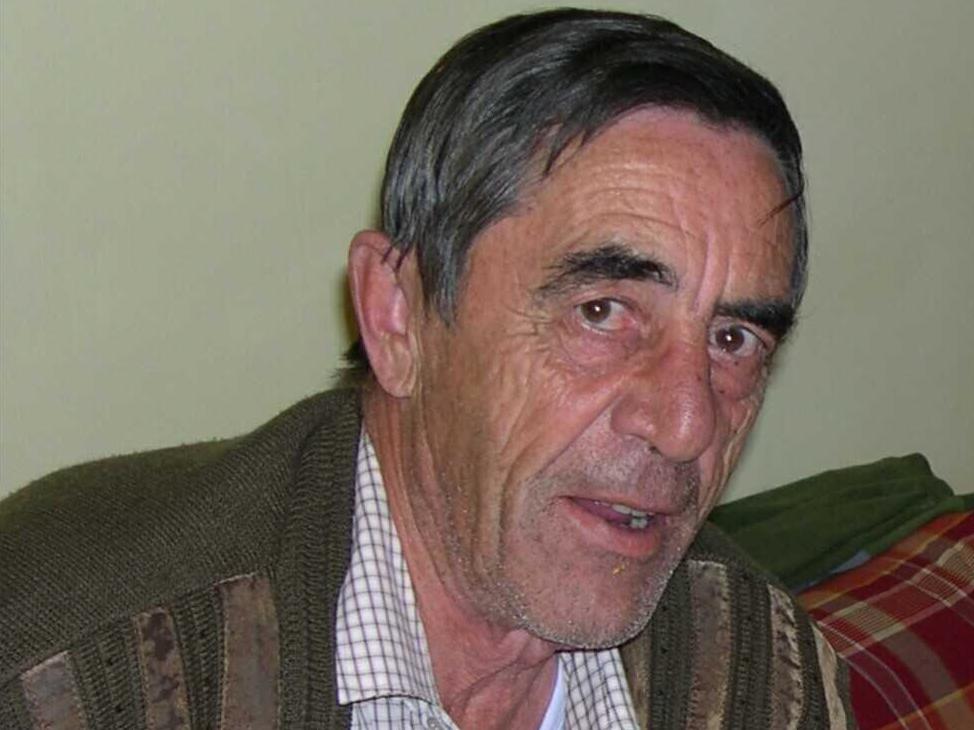Coronavirus: Families devastated after loved ones’ bodies ‘lost’ when taken to makeshift ice rink morgue
Families of victims in Spain tell The Independent they were not informed where the bodies had been taken

When Manuel Pérez Luis died from coronavirus in a Spanish hospital, his family thought their pain could not be worse.
Yet their grief was compounded after they spent six days trying to find his body. The insurance company that was supposed to have taken care of the corpse told the family they were not sure where the body had been moved.
His relatives were finally able to trace the body to an ice rink in Madrid, which had been converted into a makeshift morgue. Funeral services have become overwhelmed by the deaths of more than 3,500 in the Spanish capital.
“The pain of losing my father has been multiplied a thousand times – not only because I could not get near him to say goodbye due to the fever, but because his body was lost for six days,” his son Luis Perez told The Independent.
“Even though we have located the coffin with my father’s name on it, I cannot be sure he is inside. I will never know.”
As Spain’s daily death toll rose to a record of 864 on Wednesday, morbid stories emerged by the dozen.
The pathogen has caused 9,053 deaths in Spain, health authorities said – the second highest toll in the world after Italy. The total number of confirmed cases is 102,136.
Pérez, 75, a retired police officer, was admitted to the Hospital La Paz in Madrid on 9 March after being diagnosed with coronavirus. Two weeks later, his family was informed he had died.
When the family asked the insurance company Albia where his body was, they were told the company was not sure, as it was dealing with so many deaths.
“They said they were not sure if they had taken my father’s body or not. Finally, through contacts at the company we were told that his corpse had been taken to the Palacio de Hielo ice rink,” said his son.
Luis, 45, an administrative officer at a telecoms company, added: “Even when we were told where the coffin was I cannot look inside it to check it is my father because of the strict regulations in Madrid.
“Stories like ours are not isolated. I read another one in the paper today. There are so many people dying.”
Under Spain’s state of emergency restrictions, families are not allowed to get close to the bodies of their loved ones due to risk of contagion.
The Pérez family are not alone in their ordeal: when Juan Pedro Morán died from the pathogen, his family was also forced to embark on a week-long odyssey to find his body.
Originally, they were told that his remains were taken from a hospital to the Palacio de Hielo ice rink – the same makeshift morgue as Pérez.
However, they were later informed it was taken to a morgue in another part of the city.
Mr Morán was admitted to the Hospital Fundación Jiménez Díaz in Madrid on 18 March with a fever. The 83-year-old, who only had one kidney and was in poor health, died a week later.
A spokesperson for Santa Lucia, the insurance company that acts for Albia, the funeral services company, said: “The health crisis which we are experiencing has dramatically increased the number of people who have died from Covid-19.
“We are working with the authorities and the armed forces to reduce waiting times in the transfer of bodies from the place of death, to temporary places of deposit to the final place of rest.
“In both these cases, the families were attended by the customer services department and informed of the location of the deceased and at their request, the bodies have been cremated.”
The Madrid regional government, which is responsible for health services in the Spanish capital, was also asked for comment but did not respond.
Spain has been under strict lockdown since 14 March, with all but essential workers confined to their homes.
However, the virus has continued to spread, overburdening hospitals and straining medical supplies.
Two planes carrying masks, overalls and anti-bacterial fluids – one from China and one from Turkey – landed on Wednesday at a military airport near Madrid.
Salvador Illa, the health minister, said 7,000,000 pieces of protective equipment would be distributed among health workers, bringing the total to 18 million items since the outbreak began.
Join our commenting forum
Join thought-provoking conversations, follow other Independent readers and see their replies
Comments
Bookmark popover
Removed from bookmarks